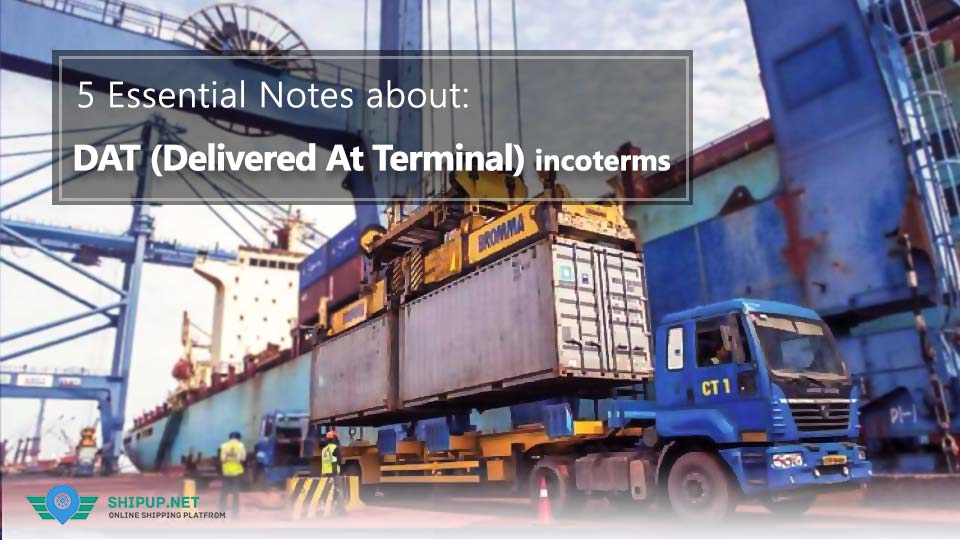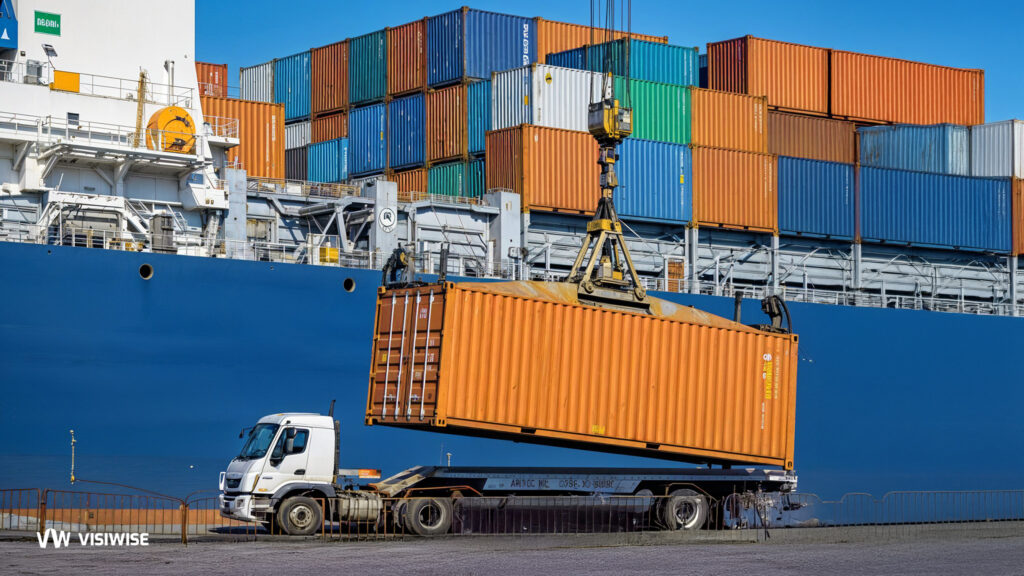DAT Incoterms means that the seller delivers the goods, once unloaded from the arriving means of transport, placed at the disposal of the buyer at a named terminal at the named port or place of destination. “Terminal” includes any place, whether covered or not, such as a quay, warehouse, container yard or road, rail or air cargo terminal.
1. Which party must arrange the carriage under DAT Incoterms?
- The seller must contract for the carriage up to the named terminal or agreed place of destination. The seller bears all risks involved in bringing the goods to and unloading them at the terminal at the named port or place of destination.
2. Which party is responsible for unloading the goods at the named place of destination under DAT Incoterms?
- The seller is responsible for unloading the goods at the named terminal or agreed place of destination. After unloading, all the risks and costs transfers to the buyer account.
3. When it is recommended to use DAT Incoterms?
- When the parties are stranger and don’t have any agent in other country, DAT Incoterms are recommended. It is mainly because that each party arrange the custom formalities in his own country. The seller also contract for the carriage to send the goods to the buyer.
4. Where is the place for transferring the risks and costs from the seller to the buyer?
- The risk of loss of or damage to the goods is transferred from the seller to the buyer when the seller has fulfilled his delivery obligation as explained in above questions.
5. When should we use other D terms instead of DAT incoterms?
- If the parties intend the seller to bear the risks and costs involved in transporting and handling the goods from the terminal to another place, then the DAP or DDP rules should be used.
To read the full obligation of the seller and the buyer in DAT Incoterms read the book “ICC Guide to Incoterms 2010”
Other useful links:
Free On Board (FOB) Incoterms
Free Carrier (FCA) Incoterms
Ex Works (EXW) Incoterms
CPT Incoterms (Carriage Paid To)
CIP Incoterms (Carriage and Insurance Paid To)
CFR Incoterms (Cost and Freight)
CIF Incoterms (Cost, Insurance and Freight)
FAS Incoterms (Free Alongside Ship)
Incoterms: Shipping Guide Every Trader Must Know



